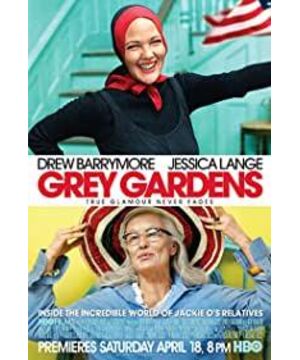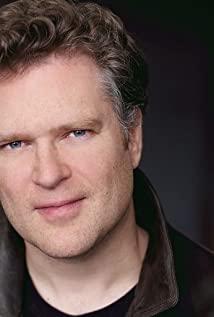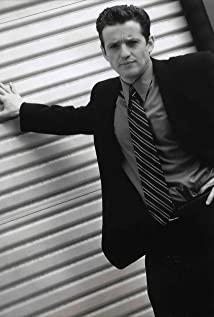This remake of the famous "Grey Garden" in the 1970s, unsurprisingly, like most thankless remakes, received a comment that "there is no remake at all"; but such comments are used in this film, Not only represents the general argument that "remake classics are not as good as classics", but has a more complex meaning. Because it-a feature film-is a documentary remake.
The original documentary is of great significance in the history of documentary, because it is the masterpiece of the "direct film" movement of American documentaries in the 1970s. "Direct film", to put it simply, is that the director (camera) minimizes the intervention of the subject, so that the subject can do the most natural and representative performance, so as to achieve the objective of recording and capturing the truth. . "Grey Garden" is the work of the Mesos brothers, a representative of the "direct film" movement. The film is about the daily life of a pair of mother and daughter who were once in the upper class but are now infinitely desolate. It records their daily trivial matters such as quarreling, feeding cats, sunbathing, etc., in detail. It can be said that life is very streamlined, plus the director With the principle of "as little as possible", the whole film presents a very pure and original feeling.
In fact, it is not surprising that such a film was seen by mainstream film companies and was remade. The reason lies in the legendary experience of the mother and daughter. After all, the decline of the upper class society to such an embarrassing situation must be contained in it. In addition to the huge character arc and the conflict between mother and daughter, mother and daughter and the environment of the times, coupled with the gimmick of "Kennedy relatives", it can be said that such a real event itself is good material that can be adapted into a drama movie. It is strange that it is not targeted. . Therefore, the film produced by mainstream companies naturally becomes a drama full of drama conflicts and reflecting the changes of the times.
The remake will inevitably be compared with the original by the good guys, but due to the nature of the original, this distance shows a sense of remoteness: the remake is a mainstream drama full of drama, while the original is a minimalist one. Watching "direct movies". The two are exactly the opposites. In fact, forget it, after all, most of the audiences who watch mainstream movies have not been exposed to the original version. But the problem is that the creators happen to be loyal fans of the original documentary. So in the remake, in addition to the 40-year-long joke narrative, the process of shooting the classic documentary by the Messos brothers was even inserted. At first glance, it looks very interesting and ingenious: first, the appearance of the Mesos brothers, played by actors, is very tribute; second, the mother and daughter played by the two actors have the opportunity to mimic real characters in a brilliant way, which will naturally make them feel better. The performance is the icing on the cake; finally, with the help of the "real reproduction" of the documentary technique, the vicissitudes of the characters and the times are more contagious. But this approach has a huge harm to the feature film itself, that is, it actively compares the film with the documentary.
This contradiction is most directly reflected in the performance. It can be said that Jessica Lange and Drew Barrymore both acted very hard. After all, it is a big challenge to complete the "40-year span" performance, and they are convincing in terms of age and role change ( The two won the Emmy and the Golden Globe respectively). But when it came to the part of documentary production, the situation changed. Originally speaking, the performance here is relatively easy and flattering: it is relatively easy because the most direct image of the original documentary is used as a reference, and flattering is because, in the common criteria for judging acting skills, as long as the agreement with the prototype is high There will be praise. Therefore, in the face of a wealth of video materials, they only need to do a high degree of imitation (there is no meaning to belittle their acting skills, after all, a high degree of imitation also requires a lot of effort). But in this way, there is a rift between the role here and the role of the feature film: most of the time they do the kind of performance in the standard Hollywood feature film, and the drama, laughter, and relief are all in place, but when it comes to the documentary, Some of them seem to have changed individuals, interpreting the inactivity of ordinary life and short complaints from parents, and it feels as if they are watching a film mixed with the main features. It can be compared with any quarrel in the documentary and the quarrel between the mother and daughter in the drama scene after the Mesos brothers left: from the eyes of each other, the tone of the quarrel, the processing of the change in tone and emotion, we see How dramatic is the performance of the latter (and we are also fortunate to see the actor's speculation on the role and the subtle difference between the role itself).
Of course, this dramatic feeling "relies on" other aspects of the film, such as the speeding up and slowing down of the editing rhythm, photographic composition and light and shadow, and the timely sounding of music. The script has also made a huge "contribution": when we compare it, we will feel those lines in the latter such as "If you are chained, it is also because of yourself", "It's all my fault" and How "lucky" the plot of finding the missing cat is inconsistent with the daily behavior and dialogue in the documentary. These conflicts and inconsistencies are unreservedly expressed precisely because of the love of the original creators for the original.
But after putting aside the simple judgments of the good and bad of this film, we will find that it is this contradiction and inconsistency that created the value of the film, allowing us to have the most direct comparison between the feature film mode and the documentary mode. It is especially rare that this kind of contrast exists in a film, the two contradictory have the same story background, and the two are opposite to each other extremes, respectively, the dramatic contradiction is obvious, the characters arcuate, and the appeal is pursued. Feature films and documentary films that pursue natural and objective original ecology and reduce subjective mood fluctuations and influence.
This is why I strongly recommend everyone to watch this film.
Of course, on the other hand, the performance of subjects in "direct movies" or in broad documentaries has been questioned a long time ago: they are aware of the existence of the camera, so that their performance will be affected and there may be Different from the performance in daily life. Therefore, the discussion about the performance in this film can be raised to the perspective of "feature film performance" and "documentary film performance". This is just for inviting ideas.
(With a brief interview highlights: http://www.imdb.com/video/imdb/vi205587225/ http://www.imdb.com/video/imdb/vi4215276313/ )
View more about Grey Gardens reviews











